Book Review
Thank You for Asking: Conversing with Young Adults about the Future Church
Sara Wenger Shenk, 2005, Herald Press
Review by Karl Landis, Lancaster Mennonite Conference
Sara Wenger Shenk has done all of us a great service in collecting and publishing the candid thoughts and feelings of almost 60 young adults on issues related to faith and the church.
Shenk provides reflections on what the young adults say, but the bulk of what she provides are excerpts from the interview transcripts, which means that she lets the respondents speak at length and for themselves. The interview data support Shenk’s contention that young adults’ lives and ideas are largely shaped by the tension between defining themselves as unique individuals while finding meaningful ways to belong to their family and church.
Shenk uses stories and practices to focus her work on how people come to understand truth and reality. In the first section of the book, the young adults describe the stories that have shaped their ideas about God, themselves, the Bible, and people of other faiths. In the second section, the questions shift to the regular practices that shape the young adults’ everyday lives, express their faith, and sustain community.
Respondents describe the practices of their families and their own current practices. The first two sections focus on the past and the present, while the third major section provides the respondents’ answers to two main questions: “Should the Mennonite church continue to exist?†and “If it does, do you want to be a part of it?â€
Thank You for Asking is well worth reading by those who have an interest in the life, thoughts, and future of young people growing up in Mennonite churches.
Toolbox
All books have been recommended by emerging Franconia Conference leaders or bikemovement
Organic Church: Growing Faith Where Life Happens
Neil Cole
2005, Jossey-Bass
A book about making church wherever people meet, whether in bars, coffee shops, or pews, to nuture each other in God’s truth.
Revolution
George Barna
2005, Tyndale House
Barna writes about how and why people who take following Jesus seriously are walking out of congregational life.
The Need for Roots, Prelude to a Declaration of Duties Towards Mankind
Simone Weil
2001, Routledge
One of the most important young spiritual writers of the 20th Century grapples with recreating community after World War II. She’s passionate, concerned and disturbed.
Velvet Elvis: Repainting the Christian Faith
Rob Bell
2005, Zondervan
While upholding the steadfastness of God and the central truths of Christianity, Bell dives deep into how we understand those truths in the 21st Century adding his voice to the discussion.
Growth Events
March 29-30: Leaders Addressing Pornography Together Sessions at Souderton Mennonite Church. All credentialed leaders are expected to attend.
April 30 – May 3: Forums on Youth Ministry
Princeton Theological Seminary, (www.ptsem.edu/iym)
April 16-18: What Would Jesus Deconstruct? A Conversation about Justice
2007 Emergent Theological Conversation at Eastern University.
May 8: Deep and Wide: Expanding Hospitality in the Faithful Church
New Life Ministries Leadership Training Event held at Franconia Mennonite Church. To register, contact Kristen Leverton Helbert at 800-774-3360 or NLMServiceCenter@aol.com.
Special Course: Biblical Survey and Anabaptist Hermeneutics
Class will be held all day Friday and Saturday, April 13-14, May 11-12, and June 8-9 at Conestoga Mennonite Church in Morganton, PA. Cost is $150 for audit and $945 for 3 credit hours. This course is part of the Gateway Course program.

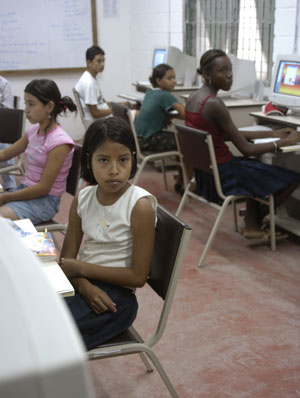 By Marla Pierson Lester
By Marla Pierson Lester 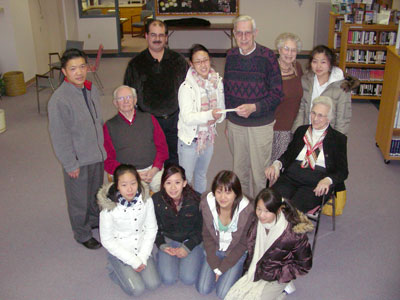 Presentation of $1,000.00 from the Korean Youth Group to the Worm Project
Presentation of $1,000.00 from the Korean Youth Group to the Worm Project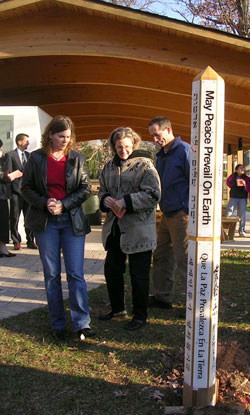 As
As 
 I recently participated in a conference at
I recently participated in a conference at 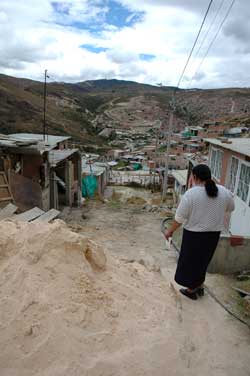 by Marla Pierson Lester
by Marla Pierson Lester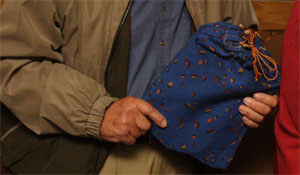 by Christine Charnosky, The Reporter
by Christine Charnosky, The Reporter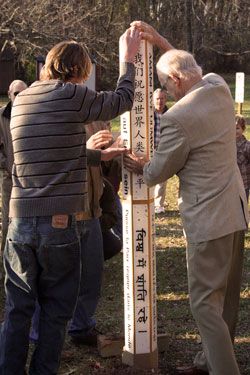 Ranck said she heard a story about a person who came to the United States and years before had received a health kit. “The person still had the bag because it had become a symbol of hope for them,” she said. She and some church members toured the MCC warehouse in Ephrata, Lancaster County, last month.
Ranck said she heard a story about a person who came to the United States and years before had received a health kit. “The person still had the bag because it had become a symbol of hope for them,” she said. She and some church members toured the MCC warehouse in Ephrata, Lancaster County, last month.